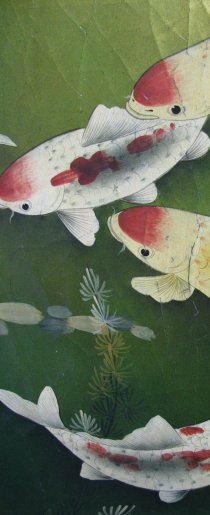Treatable Conditions
How can Acupuncture help?
Acupuncture and Traditional Chinese Medicine complements conventional medicine. They are not substitutes for any conventional medical advice, medications or treatments. As a complement to conventional medicine, acupuncture can treat both acute and chronic problems such as insomnia, digestive and elimination problems, headaches, sleeping disorders, chronic pain, smoking and eating disorders, and much more.
Acupuncture can help to reduce or eliminate the need for medications for many conditions including narcotics and other pain-relievers, but your family doctor must always be consulted in such instances.
Traditional Chinese Medicine looks at illnesses from a different perspective than conventional medicine. The basic tenet of Chinese Medicine is that we have a life force that energizes all the metabolic activity in our bodies, and this life forces (often referred to as "qi" is always moving and flowing. When qi flows unimpeded, we are healthy. When qi is blocked, we get pain and ultimately disease. The strategy of the Practitioner of Oriental Medicine is to find the areas of blocked energy, and help remove those blocks, which in turn helps the body return to its natural healthy state.
When you first meet with an acupuncturist, the practitioner will complete a new patient intake assessment and ask you questions about your health, issues and concerns. We are interested in all your symptoms and medical history which helps us start to determine our treatment strategy. The Chinese medical model is often very effective at treating hard to diagnose problems since it does not rely on having to know the biochemical reason for your condition, which is not known in most cases, particularly where blood tests and MRI's are normal. Even when blood tests show imbalances, it is not usually known why this is happening.
This difference in perspective means that Traditional Chinese Medicine can often make sense of illnesses that Western medicine has difficulty treating. In cases where Western medicine may be limited to prescribing medication for symptom management, acupuncture may be able to intervene and encourage the body in a self-healing process. Acupuncture/Oriental Medicine is currently the fastest growing healing modality in the country.
The NIH Consensus Statement on Acupuncture
In 1997 the U.S. National Institutes of Health published a Consensus Statement on the use and effectiveness of acupuncture for a variety of conditions.
Conditions Treated
In the hands of a well-trained practitioner, acupuncture has much broader applications beyond pain relief. The World Health Organization (WHO) recognizes the use of acupuncture in the treatment of a wide range of common illnesses including:
- Upper Respiratory Tract
- Acute sinusitis
- Acute rhinitis
- Common Cold and Flu
- Acute tonsillitis
- Respiratory System
- Acute bronchitis
- Bronchial asthma (Most effective in children and uncomplicated conditions.)
- Eye Disorders
- Acute conjunctivitis
- Central Retinitis Myopia (in children)
- Cataracts (without complications)
- Mouth Disorders
- Toothache
- Post Extraction Pain
- Gingivitis
- Acute and Chronic Pharyngitis
- Gastrointestinal Disorders
- Spasms of esophagus
- Hiccough
- Gastroptosis
- Acute and Chronic Gastritis
- Gastric Hyperacidity
- Chronic Duodenal Ulcer (pain relief)
- Acute Duodenal Ulcer (without complications)
- Acute and Chronic Colitis
- Acute Bacillary Dysentery
- Constipation
- Diarrhea
- Paralytic Ileus
- Neurologic and Musculoskeletal Disorders
- Headache and Migraine
- Trigeminal Neuralgias
- Facial Palsy (early stage, i.e., within 3-6 months)
- Pareses Following a Stroke
- Peripheral Neuropathies
- Sequelae of Poliomyelitis (early stage, i.e., within 6 months)
- Meniere's Disease
- Neurogenic Bladder Dysfunction
- Nocturnal Enuresis (bedwetting)
- Intercostal Neuralgia
- Cervicobrachial Syndrome
- Frozen Shoulder
- Tennis Elbow
- Sciatica
- Low Back Pain
- Osteoarthritis
- Carpal Tunnel Syndrome
- Back and Knee Pain
- Fibromyalgia
- Chronic Fatigue
- Sports Injuries and Pains
- Reproductive & Gynecological Conditions
- Premenstrual Syndrome
- Dysmenorrhea (menstrual cramps)
- Spotting and Excessive Bleeding
- Amenorrhea (Loss of Menstrual Period)
- Impotence
- Infertility
- Incontinence
- Prostatis
- Mental & Emotional Problems
- Stress
- Anxiety
- Depression
- Insomnia
- Addictions
- Eating Disorders
- Smoking
- Alcohol
- Drugs
The World Health Organization Interregional Seminar compiled the above list of illnesses that may benefit from acupuncture treatment. The list is only a partial list and is based on clinical experience, and not necessarily on controlled clinical research. The inclusion of specific diseases are not meant to indicate the extent of acupuncture's efficacy in treatment, since all conditions may vary in severity and response.
Source: World Health Organization. Viewpoint on Acupuncture. Geneva, Switzerland: World Health Organization, 1979.
Women's Health
A woman's body goes through many cycles in the course of a lifetime. From the onset of puberty, to pregnancy, and finally menopause, with years of menstruation in between, a woman's body and hormones are in a constant state of change. Traditional Chinese medicine (TCM) can restore balance at any stage of a woman's life. TCM has been proven to have a positive effect on the hypothalamic-pituitary-ovarian axis, the body's mechanism that is responsible for keeping the female reproductive system in balance.
Women's health issues respond exceptionally well to TCM. Today, traditional protocols are combined with advances in Western medical science to maximize the success of treatments.
